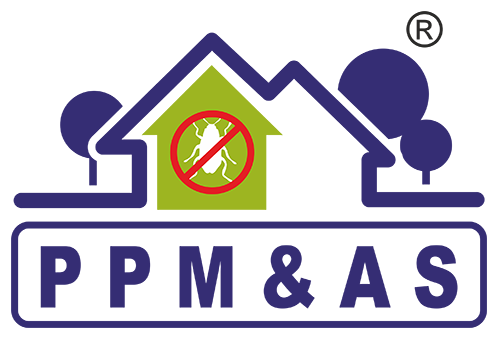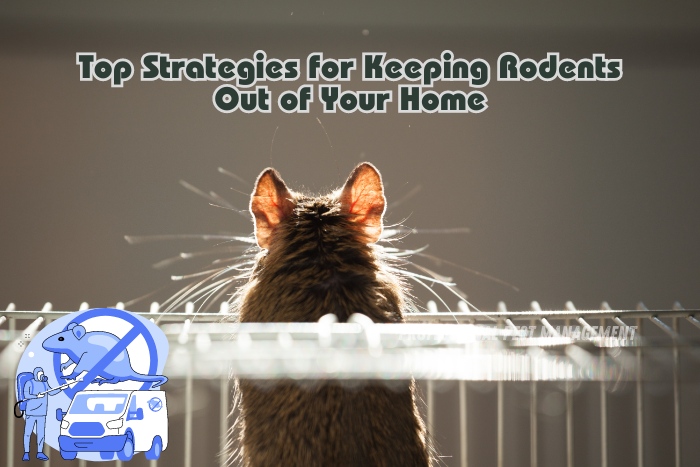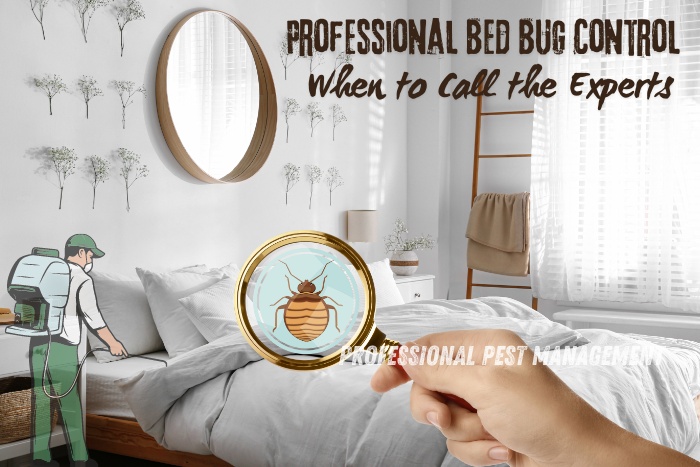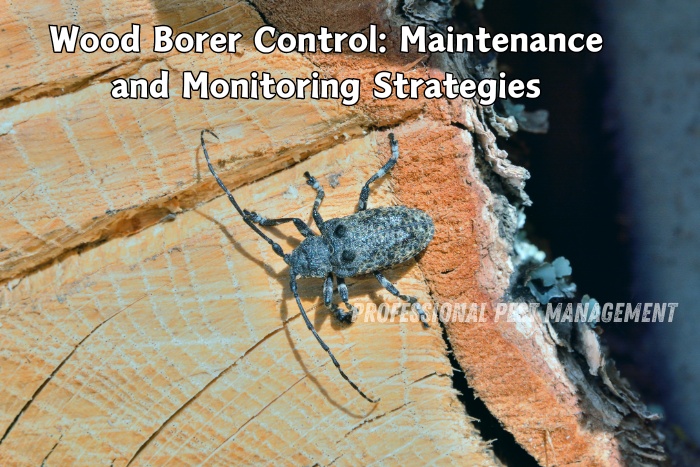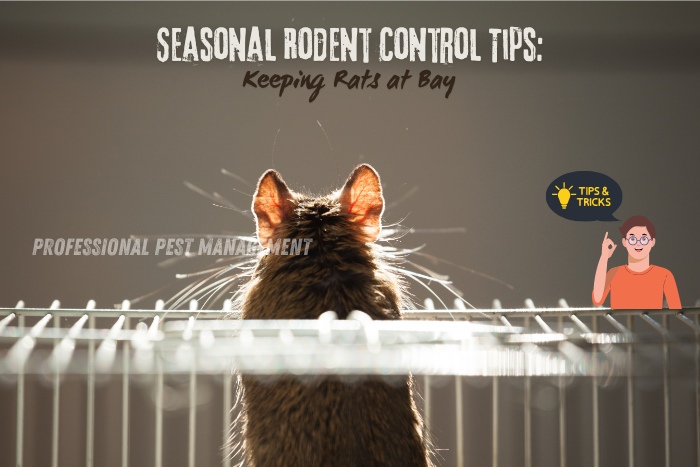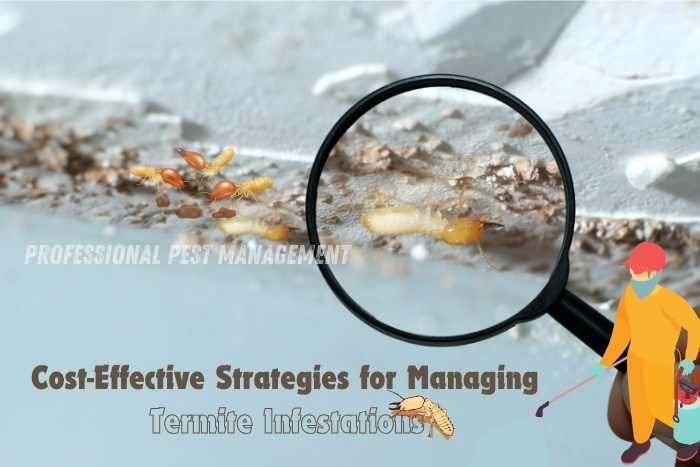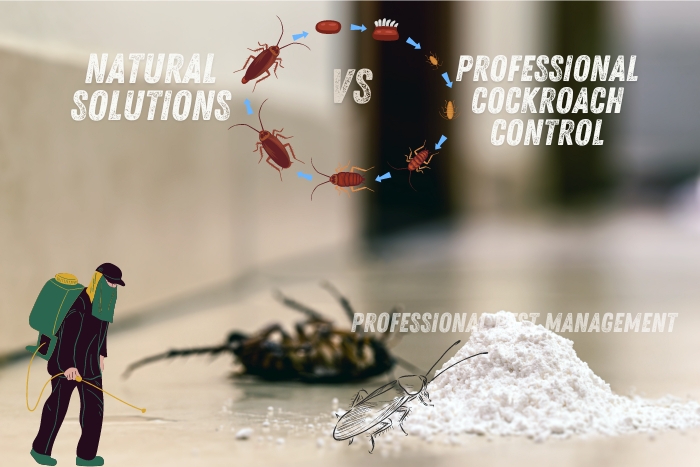Rodents such as rats and mice can become a major headache for homeowners. These tiny invaders not only create unsanitary conditions but can also cause significant structural damage and pose health risks. Whether you’re trying to prevent an infestation or get rid of an existing one, knowing the best strategies for keeping rodents out of your home is essential. At Professional Pest Management And Allied Services Pvt. Ltd., located in Chennai, we specialize in effective rodent control services designed to protect your home from these pesky invaders.
In this blog, we’ll explore the top strategies for keeping rodents out of your home and how you can safeguard your living space from future infestations.
Why Rodents Are Dangerous
Before we dive into prevention strategies, it’s important to understand why keeping rodents out of your home is critical. Rats and mice may seem harmless at first, but they can cause significant problems:
1. Health Hazards
Rodents carry diseases such as leptospirosis, salmonella, and hantavirus, which can be transmitted to humans through their droppings, urine, and saliva. Additionally, they can bring fleas and ticks into your home, further increasing the risk of health issues.
2. Property Damage
Rats and mice are notorious for gnawing on wires, insulation, wood, and even furniture. This can lead to structural damage and increase the risk of electrical fires. They can also damage food supplies by chewing through packaging and contaminating stored items.
3. Rapid Reproduction
Rodents reproduce quickly, and what starts as a small infestation can escalate into a full-blown problem in a matter of weeks. A single pair of rats or mice can produce dozens of offspring in just a few months, making it essential to act fast when you notice signs of rodents in your home.
Now that we understand the risks, let’s look at the top strategies to keep rodents out of your home.
1. Seal Entry Points
One of the most effective ways to prevent rodents from entering your home is by sealing off any potential entry points. Rats and mice can squeeze through surprisingly small openings, so it’s important to be thorough when inspecting your home for gaps or holes.
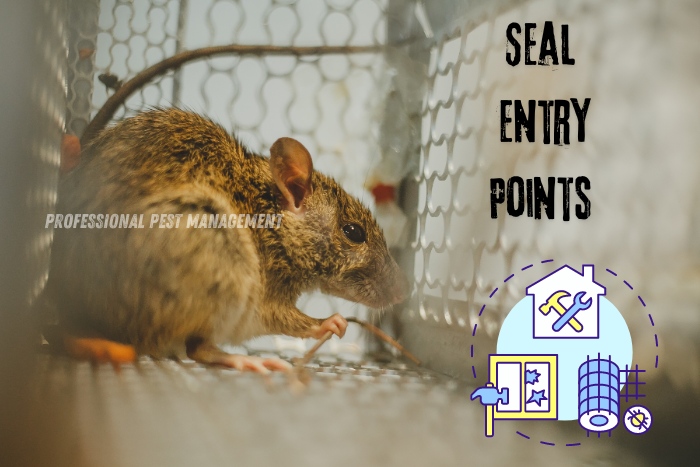
How to Seal Entry Points:
- Examine Windows and Doors: Make sure that windows and doors are correctly sealed. Install weatherstripping to fill any gaps, and use door sweeps to block the area between the door and the floor.
- Examine the Walls and Foundations: Rodents can get in through vents, foundation cracks, or other openings. For any holes bigger than 1/4 inch, use steel wool, caulk, or expanding foam to seal them.
- Roof and Attic: Homes are a common entry point for rats, particularly roof rats. Look for any holes or broken shingles on your roof and in your attic, and seal them right once. To keep rodents out, mesh screens should be installed over roof vents and chimneys.
By taking the time to seal entry points, you’ll significantly reduce the likelihood of rodents gaining access to your home.
2. Keep Food Sealed and Stored Properly
Rodents are always on the hunt for food, and your kitchen or pantry is a prime target. Ensuring that food is stored securely will help prevent rodents from being attracted to your home.
Tips for Proper Food Storage:
- Use Airtight Containers: Store grains, cereals, pet food, and other dry goods in airtight containers made of metal or thick plastic. This prevents rodents from chewing through packaging and contaminating food.
- Clean Up Spills and Crumbs: Rodents are attracted to even the smallest crumbs. Make it a habit to clean up after meals, wipe down counters, and sweep floors regularly to remove any food debris.
- Keep Pet Food Secure: If you have pets, avoid leaving pet food out overnight. Store pet food in sealed containers and ensure that any leftover food is cleaned up promptly.
By keeping food sources out of reach, you’ll make your home less appealing to hungry rodents.
3. Maintain a Clean and Decluttered Home
A cluttered home provides rodents with plenty of hiding places and nesting materials. Regular cleaning and decluttering are essential for keeping rodents at bay.
How to Keep Your Home Clean:
- Declutter Storage Areas: Garages, basements, and attics are common places where rodents build nests. Clear out clutter and store items in sealed plastic containers rather than cardboard boxes, which rodents can chew through.
- Vacuum and Mop Regularly: Rodents are attracted to food debris, so regularly vacuuming and mopping your floors will help reduce their food sources.
- Dispose of Garbage Properly: Keep garbage cans sealed with tight-fitting lids and empty them frequently. Store outdoor trash bins away from your home and keep them clean to avoid attracting rodents.
A clean, clutter-free home not only reduces the chances of a rodent infestation but also makes it easier to spot early signs of rodent activity.
4. Eliminate Outdoor Attractants
Rodent prevention starts outside your home. By eliminating outdoor attractants, you can reduce the chances of rodents getting close to your home in the first place.
Outdoor Tips to Keep Rodents Away:
- Trim Overgrown Vegetation: Overgrown bushes, trees, and shrubs provide cover for rodents and may allow them to access your home. Keep vegetation trimmed and ensure that tree branches are not touching your roof or walls.
- Store Firewood Properly: Firewood piles are ideal nesting sites for rodents. Keep firewood at least 20 feet away from your home and store it off the ground.
- Clean Up Your Yard: Remove any debris, fallen fruits, or food scraps from your yard. Rodents are attracted to compost heaps, so make sure they are properly sealed and located away from your home.
By creating a rodent-free zone around your home, you’ll reduce the chances of them entering in search of food or shelter.
5. Use Rodent Repellents
Rodent repellents can be an effective way to discourage rodents from entering your home. There are several types of repellents available, including natural options and electronic devices.
Common Rodent Repellents:
- Natural Repellents: Essential oils such as peppermint oil, eucalyptus oil, and clove oil are known to repel rodents due to their strong smell. You can soak cotton balls in these oils and place them in areas where rodents are likely to enter, such as near entry points, cabinets, or under sinks.
- Ultrasonic Repellents: Electronic ultrasonic devices emit high-frequency sound waves that are irritating to rodents but harmless to humans and pets. While these devices can be helpful in deterring rodents, they should be used in conjunction with other methods for maximum effectiveness.
Keep in mind that repellents are typically not a standalone solution for rodent control but can complement other prevention strategies.
6. Set Traps
Traps are a common method for capturing and eliminating rodents that have already entered your home. There are various types of traps available, including snap traps, glue traps, and humane traps.
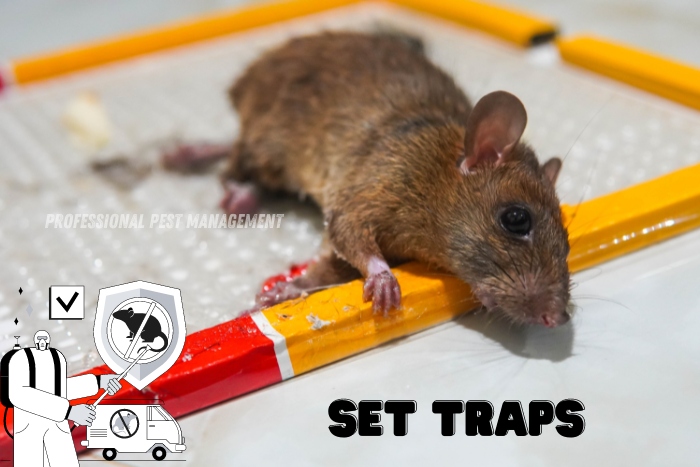
Types of Traps:
- Snap Traps: These traditional traps use a quick mechanism to kill rodents when triggered. They are effective for controlling small rodent populations.
- Glue Traps: Glue traps capture rodents by sticking them to an adhesive surface. However, these traps are often considered inhumane and should be used with caution.
- Humane Traps: These traps capture rodents alive, allowing you to release them away from your home. Be sure to release rodents far from your home to prevent them from returning.
While traps can be effective for eliminating individual rodents, they may not be sufficient for larger infestations. In such cases, professional rodent control services are recommended.
7. Regular Home Inspections
Even if you’ve taken all the necessary precautions, it’s important to regularly inspect your home for signs of rodent activity. Early detection is key to preventing a small problem from becoming a full-blown infestation.
What to Look For During Inspections:
- Droppings: Small, pellet-shaped droppings are a clear sign of rodent activity. Check areas such as kitchens, pantries, and basements for droppings.
- Gnaw Marks: Rodents gnaw on various materials, including wood, wires, and plastic. Look for signs of chewing on baseboards, walls, and furniture.
- Scratching Noises: If you hear scratching or scurrying sounds coming from walls, attics, or ceilings, it’s likely that rodents are present.
- Nests: Rodents build nests from shredded paper, fabric, and other soft materials. Check hidden areas like closets, attics, and under appliances for nests.
Regular inspections will help you catch early signs of an infestation, allowing you to take action before the problem worsens.
Why Choose Professional Pest Management And Allied Services Pvt. Ltd.?
While these prevention strategies can help keep rodents out of your home, sometimes professional intervention is necessary to deal with a severe infestation. At Professional Pest Management And Allied Services Pvt. Ltd., located in Chennai, we offer comprehensive rodent control services designed to eliminate existing infestations and prevent future ones.
Here’s why you should choose us for your rodent control needs:
1. Experienced Professionals
With over 15 years of experience in the pest control industry, our team has the expertise to handle even the most challenging rodent infestations. We use the latest tools and techniques to provide effective and long-lasting solutions.
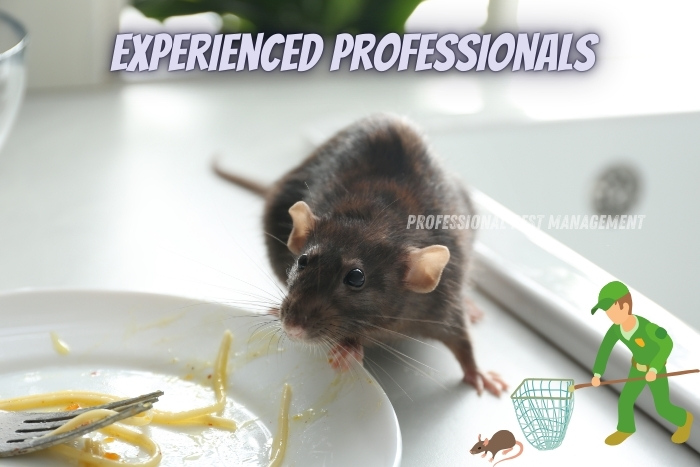
2. Customized Solutions
We understand that every home is unique, which is why we tailor our rodent control strategies to meet your specific needs. Whether it’s sealing entry points, setting traps, or providing preventive advice, we’ll create a plan that works for your home.
3. Eco-Friendly and Safe Methods
Your family’s safety is our top priority. Our rodent control methods are eco-friendly and safe for both your family and pets, ensuring that your home remains a healthy environment during and after treatment.
4. Follow-Up Services
We don’t just eliminate the current infestation—we provide follow-up services to monitor your home and ensure that rodents don’t return. Our goal is to provide long-term solutions that keep your home rodent-free.
Conclusion
In addition to posing a substantial risk to your health, rats may seriously destroy your house. You may lessen the likelihood of an infestation by using these best practices for preventing rats from entering your house, which include caulking access points, keeping your home clean, and applying repellents. However, you must immediately seek expert assistance if rats have already infiltrated your house.
To keep your house tidy, safe, and rat-free, Professional Pest Management And Allied Services Pvt. Ltd. provides professional rodent control services in Chennai. Get in touch with us right now to arrange an inspection or discover more about our offerings.
